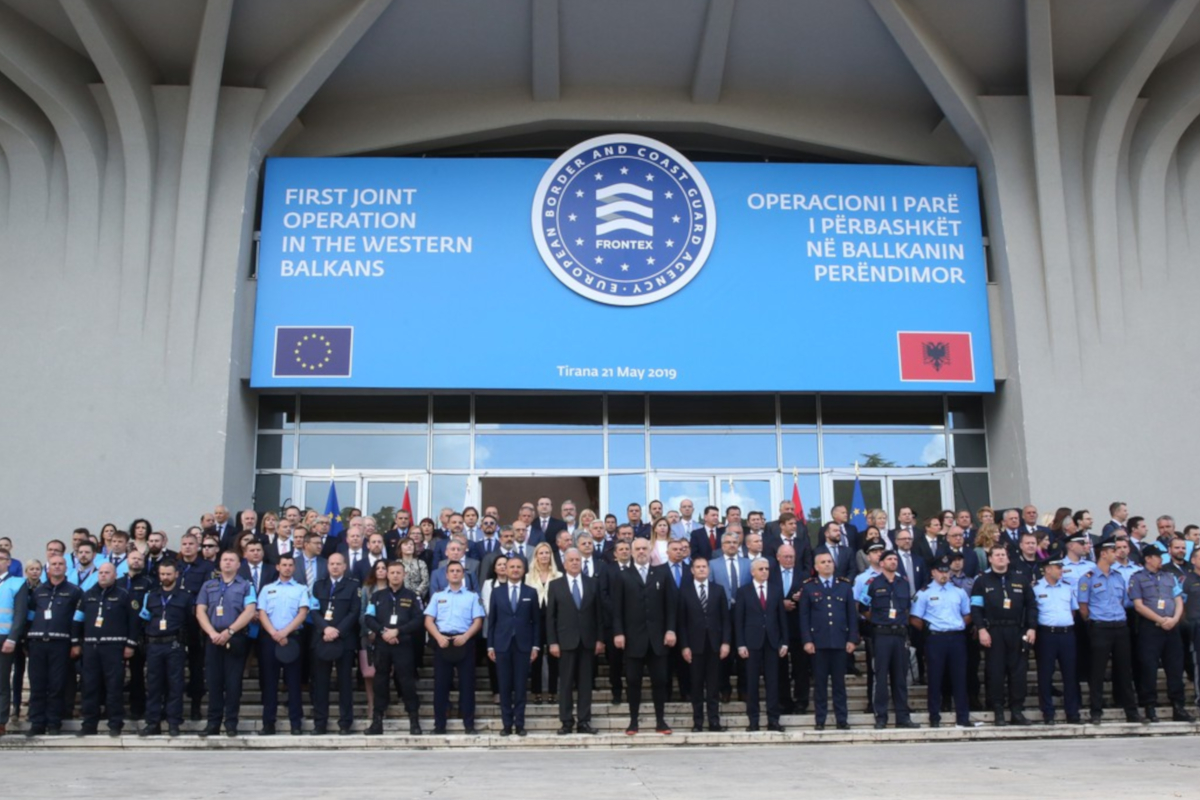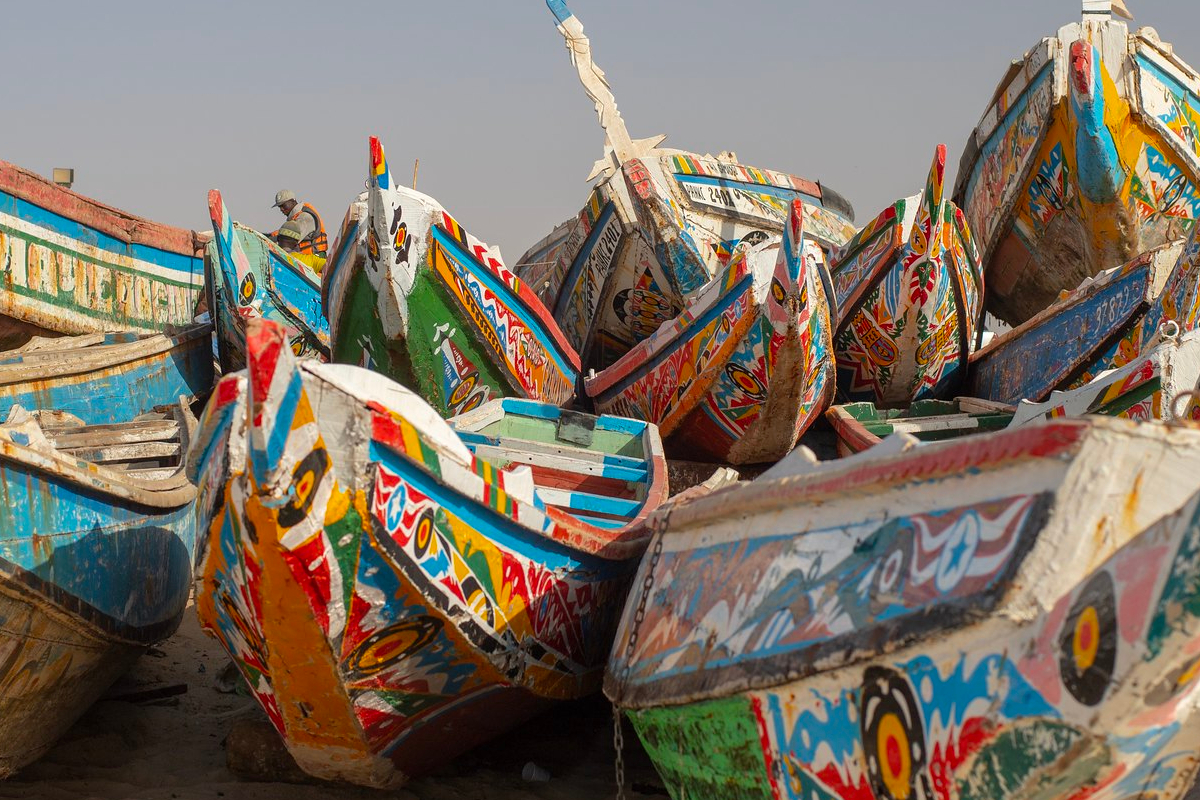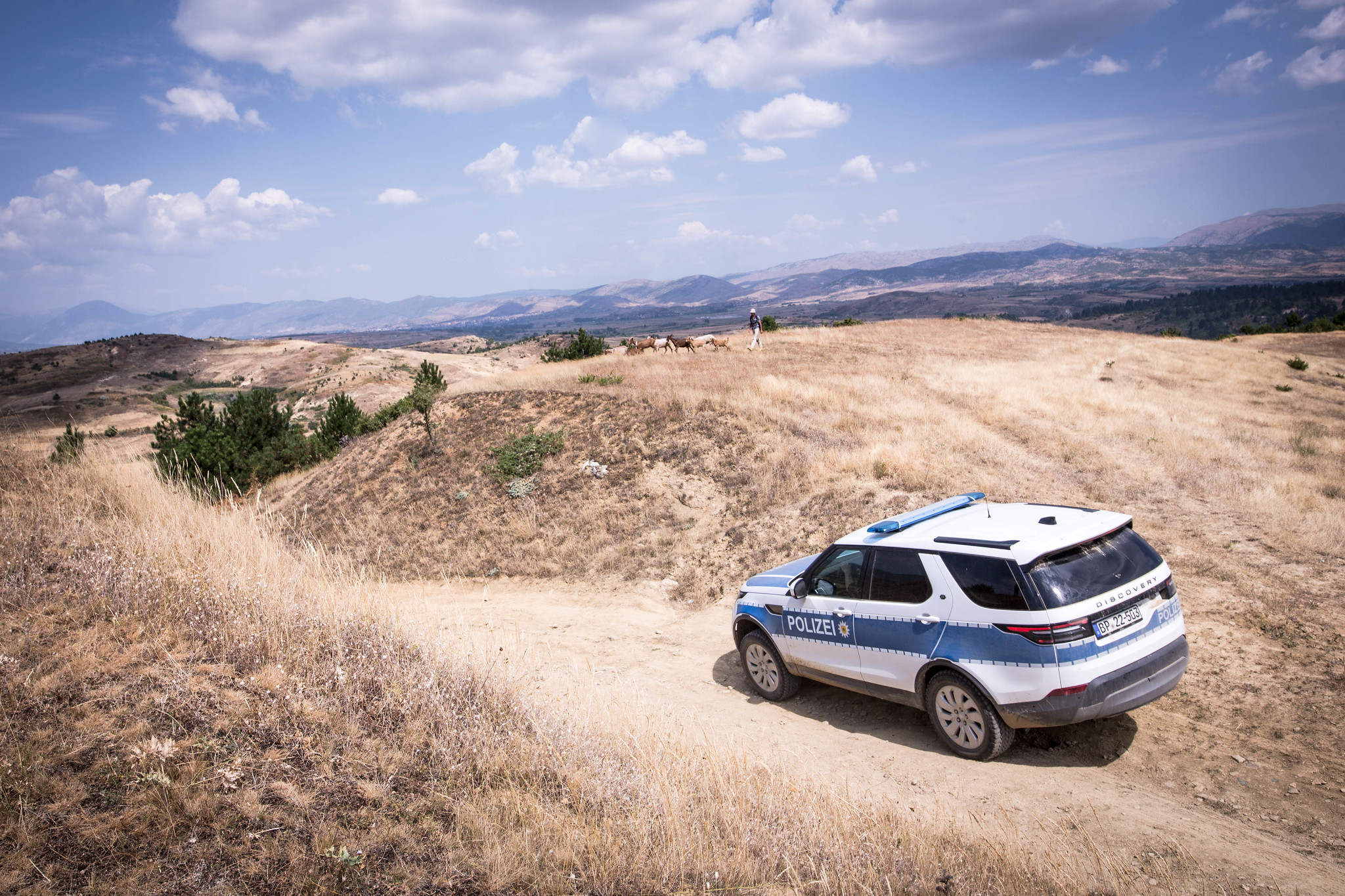Tracking the Pact: EU seeks to seal off Balkan Route with expanded Frontex deployments
Topic
Country/Region
31 October 2022
The European Commission wants to launch negotiations with Serbia, Montenegro, Bosnia and Albania so that EU border agency Frontex can extend its zone of operations. Currently, Frontex operations in those states can only take place at the borders they share with EU member states, in accordance with the 2016 Frontex Regulation. Upgrading the EU's agreements with the Balkan states to take into account the powers granted to Frontex by the 2019 Regulation will make it possible to deploy EU border guards at non-EU borders - for example, between Bosnia and Serbia, or between Serbia and Montenegro. An agreement with North Macedonia has already been signed. The aim is to halt the irregular movement of people through the Balkans towards "core" EU member states.
Support our work: become a Friend of Statewatch from as little as £1/€1 per month.

Image: Frontex
In order to launch negotiations the Commission needs the approval of the Council of the EU, and has thus sent to the Council four recommendations that, once they are signed off, will allow it to enter into negotiations with each of the four states:
- Albania (COM(2022) 690 final, in Council doc. 14060/22, LIMITE, 26 October 2022, pdf)
- Bosnia and Herzegovina (COM(2022) 691 final, in Council doc. 14061/22, LIMITE, 26 October 2022, pdf)
- Montenegro (COM(2022) 692 final, in Council doc. 14062/22, LIMITE, 26 October 2022, pdf)
- Serbia (COM(2022) 693 final, in Council doc. 14063/22, LIMITE, 26 October 2022, pdf)
An upgraded agreement with North Macedonia based on the 2019 Frontex Regulation has already been approved.
Each of the documents contains an explanatory memorandum before coming to the draft text of the proposed Council Recommendations.
For example, the proposal on Albania notes:
"Albania lies on the Western Balkans migration route, which sees significant irregular migration towards the core of the European Union, both via land and across the Adriatic Sea...
Given that Albania is a neighbouring third country that remains an important country of transit for irregular migration to the European Union, the value of cooperation between the European Border and Coast Guard Agency and the relevant authorities of Albania remains high. Albania has been a model for the successful deployment of Frontex joint operations to third countries, and it therefore represents an ideal candidate for the expansion of such cooperation."
Amongst other things, the memoranda note bilateral agreements signed by each of the states - for example, Bosnia has signed "readmission agreements with all the Western Balkan countries, Türkiye, Russia, Moldova and Pakistan whose practical implementation started in August 2022." The intention is that Balkan states will not just prevent people from arriving in "core" EU territory - they will also deport them.
There is no mention in any of the documents of the controversy the agency is mired in for its failure to uphold fundamental rights standards within the EU, in particular at the Greek-Turkish border, as confirmed by the recently-published report of the European Anti-Fraud Office.
An annex to each of the above documents contains the negotiating directives for the Commission to follow, subject to possible amendment and then approval by the Council.
- Albania (as above, ANNEX/ADD 1, pdf)
- Bosnia and Herzegovina (as above, ANNEX/ADD 1, pdf)
- Montenegro (as above, ANNEX/ADD 1, pdf)
- Serbia (as above, ANNEX/ADD 1, pdf)
Although marked 'SENSITIVE' (as are the proposals for recommendations), the annexes merely state that the agreement with each country should meet the standards set out in the model status agreement adopted by the European Commission in December last year.
The final terms of the agreements are of course subject to negotiations with each state, with the texts then sent to the Council and Parliament for approval (or not).
This is likely to lead to certain discrepancies. For example, the current status agreements with Balkan states contain differences on the privileges and immunities of officials deployed on Frontex operations:
"While the agreements with Albania, Montenegro, and North Macedonia include the provision that the executive director’s decision [on whether to waive criminal immunity or not] will be binding upon the authorities of the host state, no such article is found in the agreements with Bosnia and Herzegovina and Serbia."
Negotiations on status agreements that would allow Frontex operations in Senegal and Mauritania are also ongoing. When approved, Frontex operations in those two countries will be the first ones outside the European continent.
| State | Bordering non-EU states |
| Albania | Kosovo, North Macedonia, Montenegro |
| Bosnia and Herzegovina | Montenegro, Serbia |
| Montenegro | Albania, Bosnia and Herzegovina, Kosovo, Serbia |
| Serbia | Albania, Bosnia and Herzegovina, Kosovo, Montenegro, North Macedonia |
Our work is only possible with your support.
Become a Friend of Statewatch from as little as £1/€1 per month.
Further reading

External migration control efforts spawn sub-groups and action plans
Various sub-groups and action plans have emerged from the various 'migration dialogues' that have been set up over the last decade, such as the Khartoum Process, the Rabat Process and the Budapest Process. This includes cooperation on operational action. The 'dialogues' bring together EU member states along with other European, African, Central Asian and other states. A recent set of presentations given to a Council of the EU working group make no mention of democratic scrutiny or legitimacy.

EU: Tracking the Pact: Plan for Frontex to deploy "vessels, surveillance equipment, and carry out operational tasks" in Senegal and Mauritania
The EU's border agency is also due to open a "risk analysis cell" in Nouakchott, Mauritania, in autumn this year, according to documents obtained by Statewatch and published here. The two "action files" put heavy emphasis on the "prevention of irregular departures" towards the Canary Islands and increased cooperation on border management and anti-smuggling activities. Earlier this month, the Council authorised the opening of negotiations on status agreements that would allow Frontex to operate in both countries.

Briefing: External action: Frontex operations outside the EU
The EU has negotiated five agreements with states in the Balkans that allow Frontex operations on their territories, and most of the agreements have now been approved by both sides. This briefing looks at the main provisions of those agreements, highlights key differences and similarities, and argues that they will likely serve as a template for future deals with states that do not border the EU, as made possible by the 2019 Regulation governing Frontex.
Spotted an error? If you've spotted a problem with this page, just click once to let us know.
